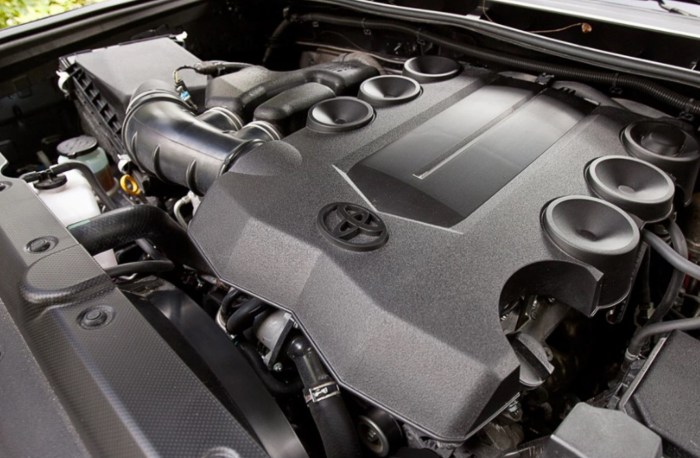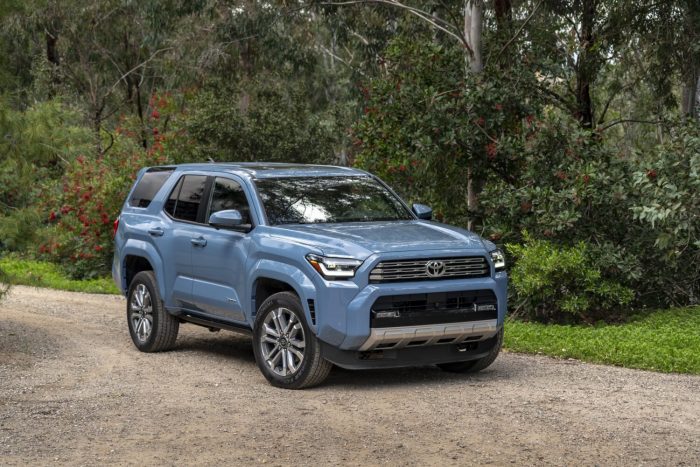The Toyota 4Runner, a legendary SUV known for its rugged off-road capabilities and robust build, isn’t typically associated with stellar fuel economy. However, with advancements in engine technology and driving techniques, maximizing fuel efficiency in a 4Runner is more achievable than you might think. This comprehensive guide delves into the 2025 model year (assuming specifications remain consistent with current trends), exploring the most fuel-efficient options and offering practical tips to improve your gas mileage.

Source: 2024toyota.net
We’ll examine various factors influencing fuel consumption and provide insights to help you make an informed decision.
Understanding 4Runner Fuel Economy: Factors at Play
Before diving into specific models, it’s crucial to understand the elements impacting a 4Runner’s fuel efficiency. Several factors contribute to its overall gas mileage, and optimizing these aspects can significantly improve your fuel economy:
Engine Type and Size:
The 4Runner’s engine is a primary determinant of its fuel efficiency. While specific 2025 engine details may vary, current models offer different engine options. Smaller displacement engines generally deliver better fuel economy compared to larger ones. Look for models equipped with the most efficient engine available for the year. Keep an eye out for any potential hybrid or fuel-saving technology advancements Toyota might introduce in the 2025 models.
Drivetrain:
The drivetrain significantly influences fuel consumption. A rear-wheel-drive (RWD) 4Runner will generally achieve better fuel economy than a four-wheel-drive (4WD) model. This is because 4WD systems add weight and mechanical complexity, impacting fuel efficiency. However, the added capability of 4WD is often worth the trade-off for many drivers.
Driving Habits:
Your driving style plays a crucial role. Aggressive acceleration, excessive braking, and high speeds significantly reduce fuel economy. Practicing smooth acceleration, maintaining a consistent speed, and utilizing cruise control on highways can substantially improve your gas mileage. Off-road driving, with its demanding terrain and low speeds, naturally consumes more fuel.
Vehicle Weight and Accessories:
Adding weight to your 4Runner, through heavy aftermarket accessories or excessive cargo, negatively impacts fuel efficiency. Minimize unnecessary weight to maximize your gas mileage. Consider the weight of any additional equipment when making modifications.

Source: carlist.com
Tire Pressure and Maintenance:
Properly inflated tires are essential for optimal fuel economy. Under-inflated tires increase rolling resistance, leading to reduced gas mileage. Regular tire rotations and maintenance are also crucial for maintaining optimal performance and fuel efficiency. Ensure regular servicing, including oil changes and filter replacements, to keep your 4Runner running at its peak.
Predicting the Most Fuel-Efficient 2025 4Runner Models
While official 2025 specifications aren’t yet available, we can make educated predictions based on current models and industry trends. It’s highly likely that the most fuel-efficient 2025 4Runner will be:
- A model with the smallest available engine (likely a V6, but potentially a smaller, more efficient engine if Toyota introduces one).
- Equipped with rear-wheel drive (RWD) instead of 4WD.
- Optimized for fuel efficiency through potential advancements in engine technology (e.g., improved fuel injection, variable valve timing).
Keep an eye on Toyota’s official announcements closer to the 2025 release date for confirmed specifications and fuel economy ratings.
Tips for Improving Your 4Runner’s Fuel Economy
Regardless of the specific model, you can take steps to improve your 4Runner’s fuel efficiency:
- Drive smoothly: Avoid aggressive acceleration and braking. Anticipate traffic flow to minimize sudden stops and starts.
- Maintain a consistent speed: Use cruise control on highways to maintain a steady speed and reduce fuel consumption.
- Reduce idling time: Turn off your engine if you’re stopped for more than a minute.
- Keep your tires properly inflated: Check your tire pressure regularly and inflate them to the recommended pressure listed in your owner’s manual.
- Use high-quality fuel: Using higher-octane fuel may not always improve fuel economy, but using the recommended grade is essential.
- Minimize cargo weight: Remove unnecessary items from your vehicle to reduce weight.
- Regular maintenance: Ensure your 4Runner receives regular maintenance, including oil changes and filter replacements.
- Aerodynamics: While limited on an SUV, consider roof racks only when needed and avoid unnecessary external additions that increase wind resistance.
Frequently Asked Questions (FAQ)
- Q: What is the average fuel economy of a Toyota 4Runner? A: The average fuel economy varies significantly depending on the model year, engine, and drivetrain. However, expect lower MPG figures compared to smaller, more fuel-efficient vehicles.
- Q: Does using higher-octane fuel improve fuel economy in a 4Runner? A: Not necessarily. Using a higher octane than recommended won’t necessarily improve fuel economy, and may even be detrimental. Use the fuel grade recommended in your owner’s manual.
- Q: How can I improve my 4Runner’s gas mileage on long trips? A: Maintain a consistent speed using cruise control, avoid aggressive driving, and ensure your tires are properly inflated. Plan your route to minimize stops and idling time.
- Q: Will a 2025 4Runner have a hybrid option? A: This remains to be seen. Toyota may introduce hybrid technology in future models, but currently, no official announcements have been made regarding a hybrid 4Runner for 2025.
- Q: What is the best way to track my fuel economy? A: Many modern 4Runners have onboard computers that track fuel consumption. You can also manually calculate your MPG by dividing the miles driven by the gallons of fuel used.
Resources
- Toyota 4Runner Official Website (Check for updated 2025 information)
- EPA FuelEconomy.gov (For fuel economy data on existing models)
- [Add other relevant links to automotive review sites or expert blogs]
Call to Action
Stay tuned for official 2025 Toyota 4Runner specifications and fuel economy ratings. In the meantime, optimize your driving habits and vehicle maintenance to maximize your current 4Runner’s fuel efficiency. Happy driving!
Popular Questions
What factors besides the model affect 4Runner fuel economy?
Driving habits (aggressive acceleration, frequent braking), tire pressure, terrain, and even cargo weight significantly influence fuel consumption.
Are there any hybrid 4Runner models for 2025?
Currently, Toyota does not offer a hybrid version of the 4Runner. However, future models may incorporate hybrid technology.
How do the different engine options impact fuel economy?
Smaller engines generally offer better fuel economy than larger ones. Comparing the EPA estimates for each engine option available in the 2025 4Runner is crucial.
Does using different tires affect fuel economy?
Yes, the rolling resistance of tires directly impacts fuel consumption. Lower rolling resistance tires can improve fuel economy.
